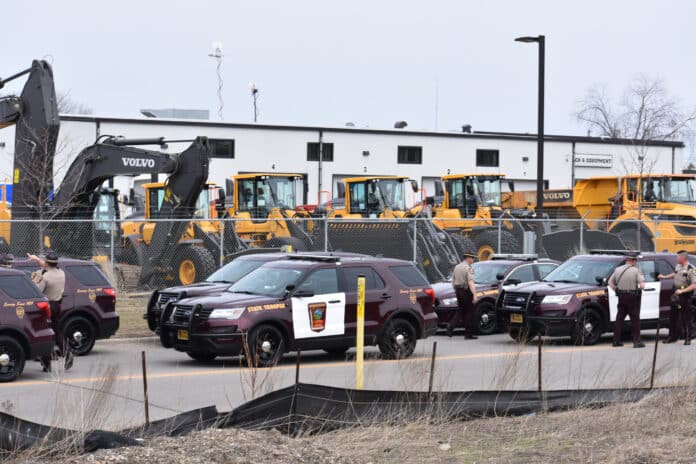
A former state trooper cited a “distorted and often inaccurate portrayal of law enforcement” in the media as one reason why there is a lack of qualified applicants.
“State troopers face a significant challenge of attracting and retaining qualified candidates due to the shortage of individuals interested in pursuing a career in law enforcement and the need to offer competitive wages,” said Mike LeDoux, the president of the Minnesota State Patrol Troopers Association.
The wage issue is the result of a lack of contractual increases between 2003 and 2012 which was caused by state budget constraints, LeDoux, a proud fourth generation law enforcement officer, told Alpha News.
He explained that currently State Patrol officers are receiving less pay than a majority of other law enforcement officers in the metro. “This wage gap not only negatively impacts career earnings and retirement benefits, but also creates challenges in retaining and recruiting these public safety professionals,” LeDoux said.
The purpose of a bipartisan bill, HF1600/SF1506, that’s currently being considered is to provide a comprehensive system for determining appropriate compensation for state troopers and other state law enforcement officers, LeDoux shared.
He went on to say that their attempts to address the wage disparity over the last decade have been largely unsuccessful. “State troopers are not average, so I don’t believe it is unreasonable for them to expect to be paid at or above the median wage of the comparison group established by the legislature,” LeDoux told Alpha News.
He said that the staffing issues facing local agencies like the Minneapolis Police Department are not isolated and have been exacerbated for the State Patrol by low wages.
Over the next five years, retirement rates could put additional strain on all law enforcement agencies. “The retirement and departure of law enforcement officers in Minnesota are at unprecedented levels, with [a total of] 2,508 [first responders] reaching full retirement age in the next five years, and we currently lack a sufficient applicant pool to replace them,” he said.
LeDoux said wage disparities at the starting level were addressed with legislative action in 2020, but a “significant discrepancy still exists at the top wage.”
“In February 2021, the Legislative Auditor’s Office published a report that was clear, concise, and objective. The report revealed a significant wage disparity for state troopers compared to the 34-city comparison group established by the legislature in 2020. According to the OLA report, state troopers’ top base wage in 2019 was considerably lower than that available to police officers in most of the cities surveyed,” he said.
Based on 2023 wage data, the State Patrol ranks 32nd in the 34-city comparison group. The average maximum monthly wage for the comparison group is $8,622. For the State Patrol, it is $7,903.
The Minnesota Department of Public Safety (DPS) is aware of the struggles facing the State Patrol regarding staffing shortages and shared with Alpha News that it is attempting to fix the problem.
“The State Patrol has worked hard to recruit new troopers by holding two academies per year recently. This includes an additional academy to recruit experienced traffic safety officers,” Howie Padilla, the communications and media relations manager for Minnesota DPS, said.
Padilla said that while salary could be a factor in the lack of applicants, it is not the only thing impacting the number of officers employed.
“These efforts have allowed the State Patrol to stabilize the size of our workforce, but have not provided enough applicants to grow into newly funded positions as provided by the legislature, with support of Governor Walz and Lt. Gov. Flanagan,” Padilla told Alpha News.
He explained that salaries for State Patrol officers are negotiated by collective bargaining with Minnesota Management and Budget.














